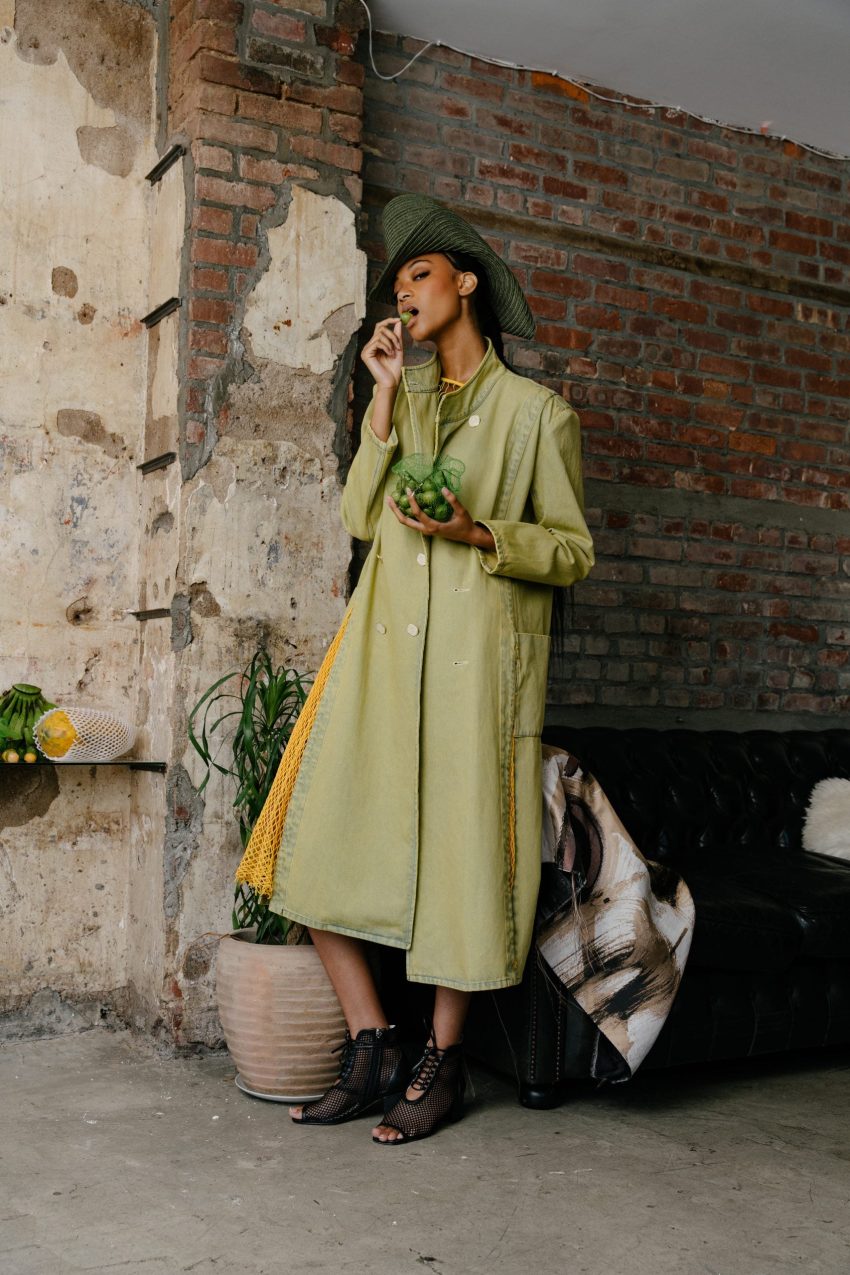Embracing Sustainable Practices in Fashion
Sustainability is a broad and complex concept, especially when it comes to the fashion industry. For Marrisa Wilson, the founder of her eponymous fashion brand, the term carries even more weight. She finds it challenging to label her brand as sustainable, given the intricate nature of the issue. As she delves deeper into the world of sustainable solutions, the complexity only grows. To navigate this overwhelming landscape, independent designers like Wilson, Bamidele Aleshe, and Stella Huang are focusing on their production processes and the communities they serve, aiming to drive change in a meaningful way.
Wilson believes that the best approach to sustainability lies in efficiency. Her Los Angeles-based brand operates with small production cycles, limited material stocks, and made-to-order pieces. With a small team, ordering large quantities of materials feels impractical and wasteful. “With all of the global stressors right now, I have to be thoughtful about every move that I make,” she explains. Her journey into sustainability began in high school, where she learned about recycled materials, yarn, and fair trade. The more she learned, the more she realized how layered the concept of sustainability is in an industrialized world.
She uses polyester as an example, noting that while innovation has brought new materials into the fashion world, it has also introduced waste. “We didn’t have a polyester problem before we started using it in clothes,” she says. Today, the challenge lies in managing the waste from these non-biodegradable materials. To address this, Wilson focuses on sourcing the most sustainable materials available without compromising on cost.
Her approach extends beyond materials; it involves direct engagement with clients. Through individual appointments, she discusses the intention and utility behind each piece, promoting responsible consumption and guiding her production needs. These conversations help shape not only her designs but also her understanding of what clothing means in people’s lives. She observes that her community is in a period of self-exploration, and this awareness influences her work.
Wilson encourages a shift in values, suggesting that focusing on local communities and smaller scales can make sustainability more achievable. “If you just try and go at this giant monster of a system, it’s going to feel disheartening,” she notes. By narrowing the focus, individuals can make a tangible impact.
Innovation and Purpose in Design
Bamidele “Bami” Aleshe, the designer behind the brand BAMIDELE, operates from a philosophy of creating only what is necessary. His brand functions as a studio practice centered around research and product development. This ethos stems from his background in biomedical research and sciences, where he found beauty in the natural world and the structures of life itself. He draws inspiration from the geometric shapes of cells, emphasizing the connection between human existence and creation.
Aleshe merges his scientific curiosity with design, aiming for purposeful work that avoids excess. One of his notable projects involves using yarn spun from algae fibers, which aligns with his commitment to sustainability. According to a report by Smithsonian magazine, these fibers offer skin health benefits and are harvested in a low-waste, regenerative process. This innovative approach reflects his vision of fashion as a tool for research and connection.
His definition of success differs from traditional metrics of capitalism. Instead, he focuses on creating a loyal audience that resonates with his values. “I try to reduce my production to very small ranges because I think that creates the most impact,” he shares. By engaging directly with customers, he gains insights into their needs and preferences, fostering a deeper connection.
Slow Fashion and Meaningful Design
Affection Blvd., founded by Stella Huang in Hong Kong, follows a slow fashion model. This approach emphasizes thoughtful design and production, ensuring that each piece is meaningful and serves a purpose. Huang rejects the fast-paced cycles of traditional fashion seasons, prioritizing intention and quality over quantity. “Slow fashion is about making responsible choices,” she explains.
By operating outside the fast-churning fashion market, Huang takes the time needed to innovate and be conscientious with her label’s designs. Sustainability, for her, is a continuous commitment. While it can be challenging with limited resources, she focuses on using natural and deadstock fabrics whenever possible. This commitment is reflected in her transparent messaging and partnerships, ensuring alignment with suppliers and audiences.
Huang sees sustainability as a celebration of love—love for the planet and everything it holds. Her brand embodies the beauty of sentimental connections and living a meaningful life. From design to storytelling, every aspect of Affection Blvd. is rooted in this philosophy.
Shifting Consumer Behavior
The collective efforts of these designers are shaping a new wave of consumer behavior. There is an upward trend in intentional shopping, second-hand sourcing, and deeper due diligence regarding what people wear. As greenwashing and fleeting trends complicate the landscape, consumers are becoming more inquisitive about their purchases.
These shifts are fueled by the examples set by designers who prioritize purpose, transparency, and community. Their practices encourage consumers to think critically about their choices and foster a sense of responsibility. By creating products that resonate with their values, these designers are inspiring a movement toward more mindful consumption.
As the industry evolves, these designers remain grounded in their hopes and intentions. They look forward to exploring new opportunities, whether in hyper-local spheres or through deeper research and collaboration. Their commitment to sustainability continues to shape the future of fashion, one intentional decision at a time.
